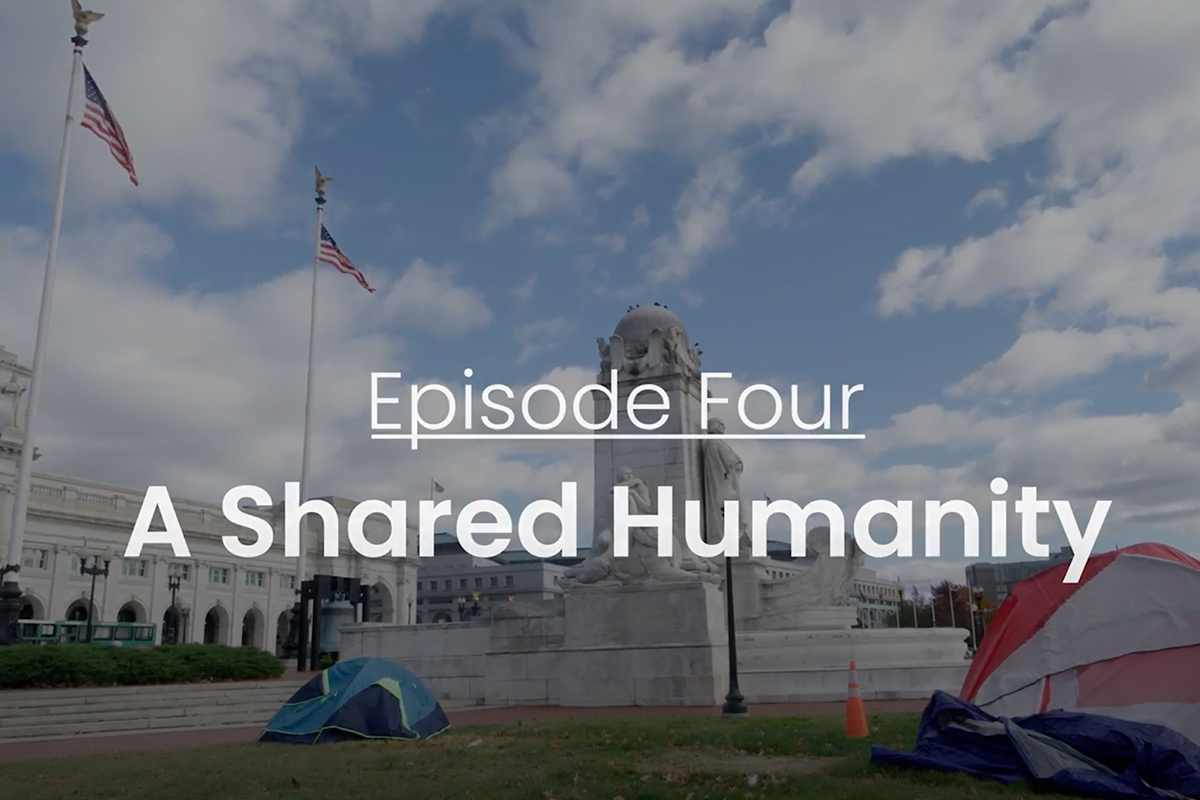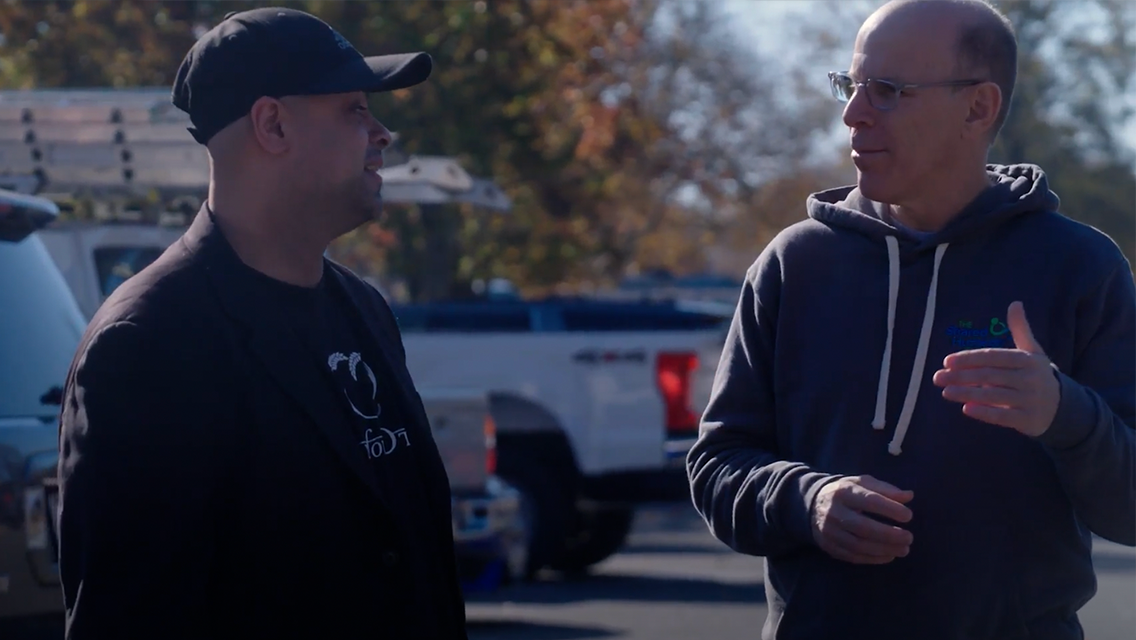A SHARED APPROACH
EPISODE THREE
TIME TO PARTNER…
With the Shared Humanity Project continuing to grow, Mark and Katherin work to build out a nation-wide network of partners and mission-driven organizations that can help in their efforts to eradicate poverty – together.
“We’re not trying to sell a new kind of peanut butter here; we’re trying to end poverty.”
At our last check-in, Shared Humanity Project Co-Founders Drs. Mark Bergel and Katherin Phillips were in the process of starting up and rolling out the organization; keeping their mission top of mind and embracing the challenges of a national effort to end poverty in America. They were tending to the day-to-day tasks of creating a legally established non-profit organization, and looking ahead to address their fundraising and communications needs. They had launched The National Plan to End Poverty and were analyzing test results. We catch up now with Mark and Katherin as they continue to build their .ORG and grow smart through partnerships, fundraising, and leveraging their dynamic partnership for the greater good.
Launch Success
We asked Mark Bergel what the reaction has been to the launch of the National Plan to End Poverty.
“The reaction has been: ‘Wow.’ It’s a very robust set of data. People can learn a lot about not only where they live but about the whole country—about every county in every state. I think people are really surprised by how much is in it and excited because the actions are simple to use. They’re clear. And that was the intent of the plan. So, we’ve been happy with the response so far.”
Pace Yourself and Get It Done
Mark and Katherin have shared their desire to build the organization in a careful, stepwise fashion. But sometimes a leader’s impulse is to be more “hare” than “tortoise.” So, how does SHP manage the urgency of their mission with the need to build their .ORG in a smart and sound way?
For Katherin, the nature of .ORG allows for smart growth.
“.ORG encourages ideas and trying things for ‘trying them sake.’ A good idea that reaches the community is worth pursuing if others support it. So we’re not answering to shareholders, we’re not answering to profit margins. Instead, we’re doing what is what we feel is right.”
For Mark, the challenge is then to balance patience versus impatience:
“The dual aspects of steadying a ship while getting a ship in the water is always a challenge,” Mark notes. “I think we have the appropriate patience and the appropriate amount of impatience. But poverty is not something to address by reducing it by a certain percentage. People die because they live in poverty.”
The Power of Partners
The need to raise money and garner attention for a .ORG is key to building any start-up organization. As Shared Humanity Project focuses on its official nationwide launch, the priority is tapping into people and groups who want to spread the word and support the cause.
“We’re not trying to sell a new kind of peanut butter here,” Mark adds. “We’re trying to end poverty. I’m hopeful marketing companies or publicists—and anybody who can help get the word out—will be interested in helping us. So that’s number one. Number two is building partnerships with organizations around the country, whether they’re non-profits or connected to local governments or state governments. The good news is Katherin and I researched over a thousand organizations. And from my previous work I’ve connected with hundreds, maybe thousands, of other organizations. We’re looking for the folks who say, ‘We’re using the plan, we’re in.’”
Life-Changing Outcomes
It’s not enough for Mark and Katherin to throw money at a problem. For them, poverty is not a red or blue-state issue, as their National Plan to End Poverty demonstrates. The time for “modest outcomes” is over, they say.
“I look at the way we’ve addressed poverty in this country, spending trillions and trillions of dollars over the years on the ‘war on poverty’ for modest outcomes,” Mark laments. “If people don’t have money for lunch, thinking about how to get a PhD is going to be a little challenging. So, let’s just make sure everybody has their basic needs met. And everybody has an opportunity to gain employment and to build a career and to have generational wealth. If we can do that, in a way that brings us together instead of pointing fingers, then I think we can say, ‘Okay. Now, what’s possible?’”
Art Versus Science
Mark and Katherin felt it was important to lead with data in their approach to ending poverty, which puts them on solid footing as they continue to grow their .ORG. Now, they are pivoting to what Mark calls “the fun stuff.”
“It’s exciting, you know, to finish the first initiative,” he says. “Now, we’re looking at how we can raise funds to do a true national launch. We have a lot of responsibility to present information about poverty in a high-level manner. We did the science part and will always have the science part. I am more of an artistic type. So, it’s moving from the grind of building that first project, to now launching it in a national way. We’re building partnerships.”
Milestones Versus Timelines
Mark and Katherin have set phases to their work, but they are careful to not worry too much about how long it takes to move through each phase. Mark offers similar advice to other .ORG leaders:
“There is a difference between milestones and timelines. I think as long as you don’t get burdened by putting timeframes to your milestones, you’re probably okay. If you’re responsible with the work, you’ll probably knock out the work in the appropriate amount of time with the appropriate amount of thought, and therefore the milestones take care of themselves.”
Fundraising Versus Fear-Raising
Shared Humanity Project has started to receive donations from individuals and families. They also are looking at private foundations and corporations, as well as local governments as potential funding sources. When it comes to meeting their goals, yes, they have them. But they also take a balanced approach. Mark notes the importance of fundraising in this regard:
“I think we’ll have to spend somewhere in the vicinity of $250,000 USD to launch nationally,” he says. “So, I think our first goal should be to raise $500,000 USD, so that we can take $.50USD of every dollar and spend on the greatest needs for the organization. We’ll start submitting proposals and using Foundation Center Online, the Chronicle of Philanthropy, and other resources like those to help us with fundraising. If we hit our goals, we can grow our team. The more people we have, the more work we get done, and the more relationships we can build. But I’m not going to spend too much time thinking about what happens if we don’t, because that’s a ‘fear energy.’ I believe that if your mission is right, and you’re the right one to do it, the universe will conspire to make it happen. I have a little bit of [philosopher and author] Paulo Coehlo in me.”
Mistakes Versus Lessons
Mark has enough experience under his belt, having already created and launched his first .ORG, A Wider Circle, to recognize that mistakes can happen—but it’s what you get from them that matters in the long run.
“The mistakes I’ve made in the past nine months probably pale in comparison to mistakes I made my first time around. This time, I just think it’s about giving myself the time to be as informed as possible. Because not only do you have to be informed, but you have to understand what source you’re getting your information from. Shared Humanity Project was born to bring people together. I have to be considerate of all sides of an argument. That’s the lesson I learned that has changed me dramatically.”
One Year Ago Versus Now
Lastly, we asked Mark, if he were to go back in time to the very beginning, what key point of guidance would he give Katherin and himself. His answer:
“I would tell myself to go in order. I did try to do a little too much at first—to tell everybody in the world, ‘Hey, this is what I’m doing now and help us do this!,’ instead of just taking my time. I thought I knew a lot because I had worked in the poverty space for 19 years. But the way we’re addressing poverty now requires a much greater mastery of the information and the history of poverty. So, I think I would have really immersed myself in that and made sure that I was a subject area expert. I know a heck of a lot more now than I did back in the fall [of 2020], including a lot more about what Katherin and I need to do. Luckily, I had a partner who kept course-correcting me. And I think that’s what you do for a partner – you course-correct.”
START YOUR JOURNEY
GET ADVICE FROM LEADERS
VIEW THE COMPLETE SERIES
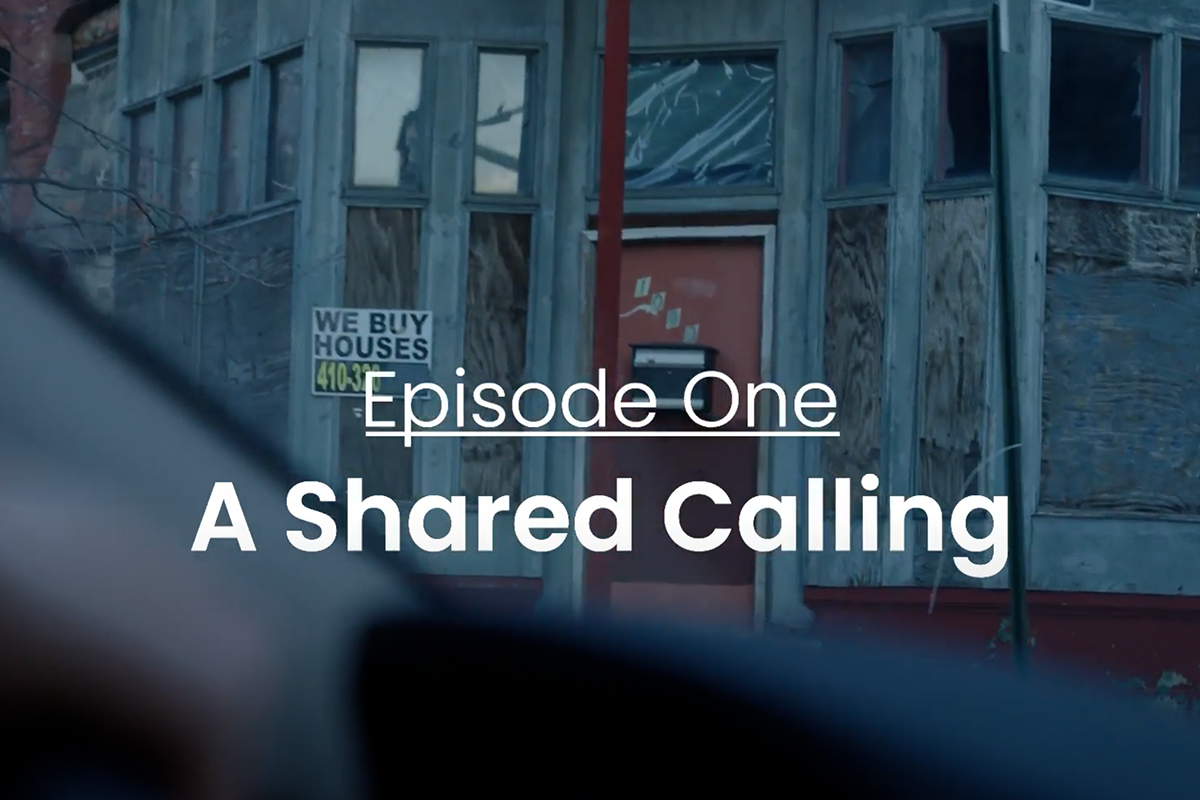
I: A SHARED CALLING
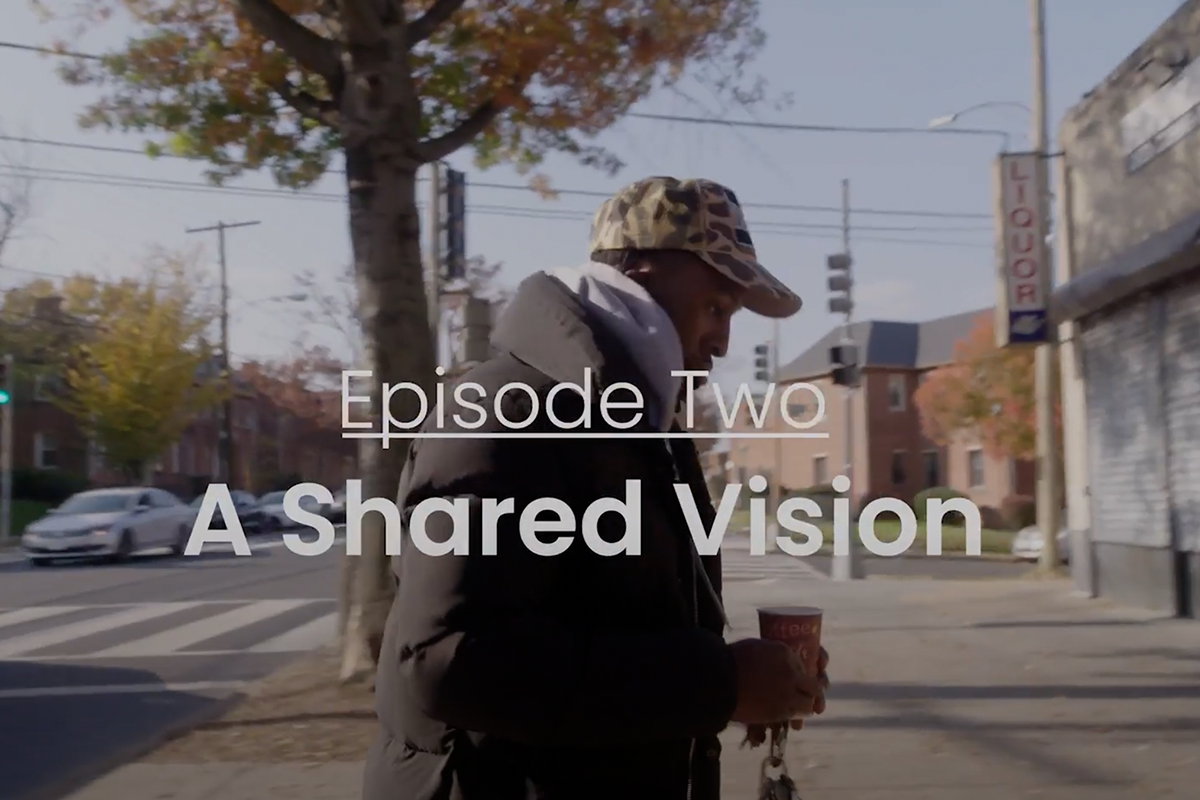
II: A SHARED VISION
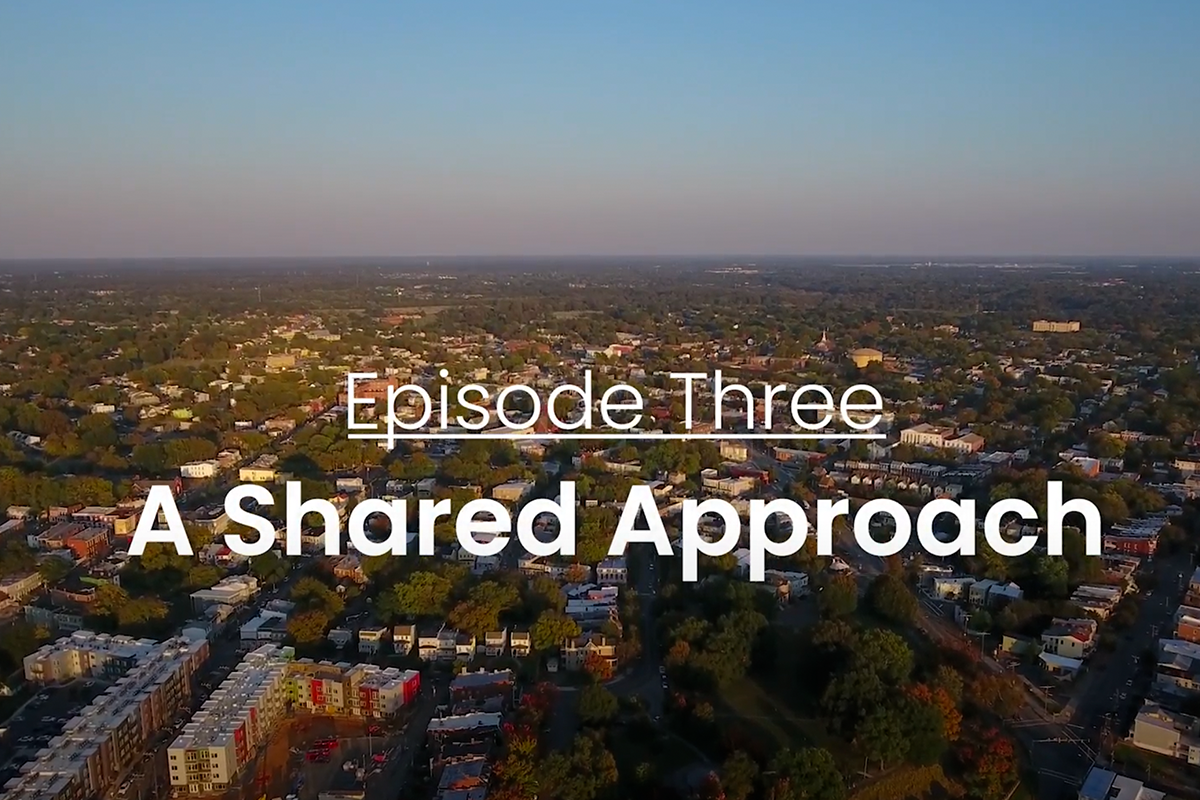
III: A SHARED APPROACH
